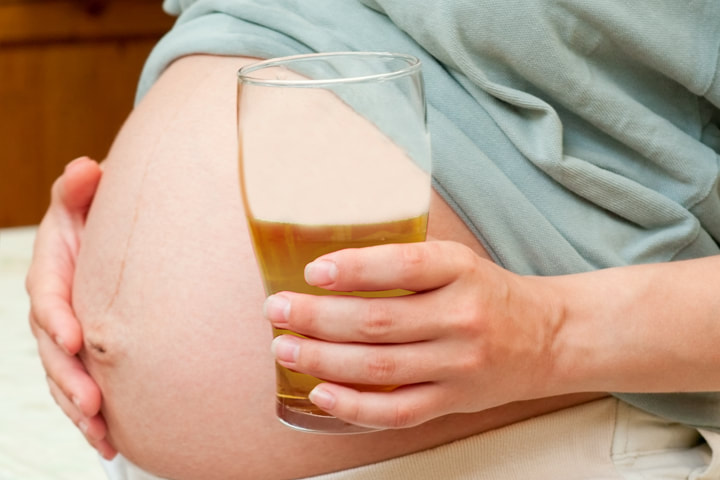 Maternal Malnutrition Might Occur as a Result of Morning Sickness when Left Unresolved Maternal Malnutrition Might Occur as a Result of Morning Sickness when Left Unresolved Life is a cycle. Things branded as conventional and traditional are making a comeback these days in full swing. Bell bottom pants, tie-dye prints, puff sleeves, mini dresses from the 60s and maxi dresses from the 70s have captured the attention of fashionistas. In the food sector too while we gloat about superfoods and supplements more and more individuals are interested in knowing more about grandma recipes and authentic plant-based foods that ruled our country once. The present world boasts of organic foods, nutrient-packed foods such as kale and sea weeds and protein shakes that add energy to our body. Despite advancements the heath of this generation is only deteriorating at a faster pace. While youngsters in their 20s and 30s complain of knee pain our grandparents are hale and healthy even in their 70s and 80s. They were brought up in a processed food-free world where all the ingredients were pure, pesticide-free and healthy. They relied on millets, natural produce and above all toiled through the day to make ends meet unlike the present-day people who sit down in front of a computer and keep hitting the keyboard as fast as possible! Ayurveda is deep-rooted in India and our ancestors relied on this treatment method for curing a number of ailments. Ginger, gooseberry, long pepper and garlic have been indispensable part of our culinary preparations since time immemorial. Do you remember the days when our complains on digestive problems and stomach pain had always been responded with simple yet effective recipes using ginger by our grandma? While it could have sounded funny back then but we still consumed it fearing our mom’s thrashings otherwise they have definitely helped up sail through tough seas quite a lot many times. Maybe now, medically too we are revisiting our traditional recipes for soothing certain ailments and finding relief from our age-old ingredients. With this, there is no denial in accepting the fact that ginger occupies one of the primary positions in all our homes. We might use it for preparing masala tea, as a spice in making sabjis, its juice is consumed to relieve digestive problems and we sometimes eat small chunks of ginger with jaggery to avoid vomiting. Overeating can sometimes lead to a persistent vomiting sensation that’s otherwise not much of a problem. But vomiting and nausea remain critical factors affecting quality of life in most pregnant women in the form of morning sickness. Ginger, a traditional form of medicine has once again occupied mainstream position in relieving nausea and vomiting symptoms in pregnant women. Traditional & Complementary Medicines (T&CM) The World Health Organization feels that T&CM have come a great way from their origin. The side effects of common medicines and the antibiotic resistance that’s increasing seen these days are evidence enough to make a switch to other forms. Ginger, a herb popular for its culinary and medicinal value has been used in Asian and Ayurvedic medicines as an anti-inflammatory and anti-pyretic agent to treat diabetes, rheumatism, nausea, diarrhoea, stomach pain, UTI, rheumatism and to strengthen memory as well since thousands of years. Though a native of Asia it is now cultivated all around the world making it an indispensable cooking ingredient and a household cure for flatulence. While Indians love this rhizome, even Chinese and Japanese individuals have used it to treat headaches, cold, nausea and stomach problems. Pregnant Chinese women have been consuming ginger to combat morning sickness. Nausea and vomiting are common complaints during the early stages of pregnancy and there are even some theories which support that these symptoms convey the fact that the fetus is healthy and growing normally. Nausea and vomiting of pregnancy (NVP) occur in 80-90% of pregnant women and is known as morning sickness (while it can occur anytime of the day its effects are maximum soon after getting up in most women). It starts by 4-9 weeks of gestation maximizing by 7-12 weeks and subsiding by week 16. Very rarely, some women experience its symptoms (mostly nausea and vomiting, some have nausea without vomiting but vomiting without nausea is a rarity) until delivery. 1-2% women experience a debilitating condition known as ‘Hyperemesis gravidarum’ where nausea and vomiting symptoms are extremely severe that it can lead to starvation and dehydration. Despite these effects the exact cause behind NVP remains a mystery till date. Fighting NVP While we do have traditional medicines to limit NVP many pregnant women prefer not to use them fearing harmful side-effects. While we might argue that NVP is a part and parcel of every pregnancy some women suffer badly from malnourishment, weight loss and a completely undesirable pregnancy phase. Still pharmacological drugs don’t find a place in their kitty and non-pharmacological treatment options are mostly preferred by pregnant women and one such option includes using ginger to treat NVP. Ginger is included in the US Food and Drug Administration’s ‘generally recognised as safe’ list, it is included in the pharmacopoeias of Western countries, the ‘British Herbal Compendium’ lists ginger as a remedy for vomiting with pregnancy and UK has been using ginger capsules as a remedy for motion sickness for more than 40 years. Still, scientific evidence is mixed for using ginger against NVP as higher doses of concentrated ginger in powder form or herbal tinctures increases bleeding risk by decreasing platelet aggregation and also elevates stomach acid production. Below is a systematic review (SR) of the available studies that look into ginger and its effectiveness against NVP. Systematic Review of Ginger as an Aid Against NVP The review included randomized control trials (RCT) where women suffered from NVP. Comparisons were made among women who consumed any form of ginger (fresh root, dried root, powder, tablets, capsules, liquid extract and tea) orally to those on placebo or active ingredient. Databases were searched and the trials were chosen according to the study criteria. Only 12 studies met the study criteria which included a total of 1278 participants. While 11 of the 12 studies included women suffering from NVP only one study included women suffering from HG. Almost all the studies used ginger powder capsules as intervention anywhere between 1000mg and 1950 mg ginger per day. 1 study included ginger biscuits as intervention amounting to 2500 mg ginger per day. One study used ginger syrup, another used ginger extract and yet another used ginger essence. 7 studies used a placebo as control: 2 studies used lactose as placebo, one used lemon oil, one used flour and one used soya bean oil. One study used placebo biscuit and yet another one capsules. Ginger Versus Placebo Seven studies analysed the effect of ginger versus placebo and reported the following results:
Only 3 of 12 studies reported on this. 1 study reported that ginger did not improve response compared to placebo. Adverse Effects & Side Effects Four studies reported no adverse effects of ginger, one study reported that the patient suffered spontaneous abortion while yet another patient sought legal abortion. For any event such as diarrhoea, drowsiness, headache, heartburn, spontaneous abortions and abdominal discomfort that called for medical treatment there was difference seen between the ginger and placebo treatment group. Reduction in Vomiting Frequency 4 studies reported reduction in vomiting episodes but there was no difference in results seen between doses. The reviews do seem to suggest benefits of ginger in minimizing symptoms of nausea in pregnancy but did not have much effect on vomiting episodes. Other Studies Willets et al. conducted a randomized double-blinded placebo-controlled study that looked into the effect of ginger extract on morning sickness symptoms in 120 pregnant women. Four days later it was seen that nausea experience score was less than zero but vomiting symptoms were not affected between the ginger-consuming group and the placebo group. Keating et al. showed that 1 g of ginger syrup consumed for two weeks helped 67% women in the ginger group to stop vomiting at day 6 vs 20% in the placebo group. Basirat et al. did a randomized double-blind clinical trial on 62 pregnant women of which 32 women took 5 biscuits daily for 4 days each containing .5 g of ginger. Nausea scores improved in this group compared to placebo but vomiting showed no changes. But 4 days after treatment the number of women who had no vomiting in the ginger group was greater than that in the placebo group. Ding et al. pointed out that the various ginger treatment methods were safe and effective for treating NVP. Two other meta-analyses supported the fact that ginger could be a safe and reliable way to curb nausea and vomiting in pregnant women. Ginger, a herb that’s been in use for centuries is considered to be safe and effective against nausea and vomiting in pregnant women when used within recommended doses for a stipulated period of time. References A Systematic Review & Meta-analysis of the Effect And Safety of Ginger in the Treatment of Pregnancy-associated Nausea and Vomiting: https://nutritionj.biomedcentral.com/articles/10.1186/1475-2891-13-20 How Safe is Ginger Rhizome for Decreasing Nausea and Vomiting in Women during Early Pregnancy? https://www.ncbi.nlm.nih.gov/pmc/articles/PMC5920415/ Medicinal Value of Ginger with Focus on its Use in Nausea & Vomiting of Pregnancy: https://www.tandfonline.com/doi/full/10.1080/10942910601045297 Comments are closed.
|
AVOID FRAUD. EAT SMART+91 7846 800 800
|
- Home
- Written Testimonials
- Consult
- Clinics
- Blogs
-
Diet & Nutrition
- Diabetes Reversal
- IVF IUI not needed for PCOS PCOD Infertility
-
Medical Nutrition
>
-
Disease & Conditions
>
- Infertility | PCOS
- Diabetes Mellitus
- Cholesterol
- Hypothyroid
- Kidney Problems
- Hypertension
- Cardiovascular Diseases
- Liver Diseases
- Gastro intestinal disorder
- Cancer
- Metabolic Disorders
- Orthopedic Disorders
- Eating Disorders
- Dietary Recall
- Weight Record Filled By Clients
- Online Payment Transaction Details
- Online Clients Weight Check Form
- Our Program Package Service Charges
- Weight Record 2017 Clients
- Measurements sent by Clients
- Terms & Conditions Of Payment
- Thanks. Your Form is Submitted
- Video Testimonials
- Lifestyle & Wellness
- Lifestyle & Wellness Blog
- Allergy & Intolerance
- Weight Loss / Gain
- Weight Loss / Slimming Blog
-
Disease & Conditions
>
- Life Cycle Nutrition >
- Sports Nutrition >
- Integrity in Nutrition
- Knowledge Centre
© COPYRIGHT 2022. ALL RIGHTS RESERVED. FRST HEALTHCARE PVT LTD.
Dr. Nafeesa Imteyaz of First Eat Right clinic, is the Best Dietitian Nutritionist in Bangalore. Best Dietitian Nutritionist in Pune. Best Dietitian Nutritionist in Hyderabad. Best Dietitian Nutritionist in Chennai. Best Dietitian Nutritionist in Mumbai. Best Dietitian Nutritionist in Delhi. Best Dietitian Nutritionist in Kolkata.



